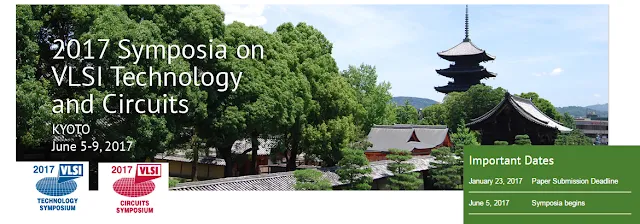The Technical tracks will be grouped under the theme track and the three broad categories namely, Design Methodologies and Technology, Design Tools and EDA and Embedded System Design and Tools. The conference proceedings will be published by the IEEE Computer Society Press. Selected papers from this conference will also be published as special issues of top archival journals.
Authors are invited to submit full-length (6 pages maximum) in IEEE CS proceedings format, original, unpublished papers with an abstract (200 words maximum) under the tracks listed below. To enable double blind review, the author list should be omitted from the main document. Papers violating length and blind-review criteria would be excluded from the review process. Previously published papers or papers currently under review for other conferences/journals should not be submitted and will not be considered for publication.
Track: Design Methodology and Technology
D1: System-level Design
ESL, System-level design methodology, Multicore systems, Processor and memory design, Concurrent interconnect, Networks-on-chip, Defect tolerant architectures
D2: Advances in Digital Design
Logic and Physical synthesis; Place & Route, Clock Tree, Physical Verification, Timing and Signal integrity, Power analysis and integrity, OCV, DFM; DFY; Challenges for advanced technology nodes
D3: Analog / RF Design
Analog Mixed Signal IP; High-Speed interfaces; SDR and wireless; Low-power Analog and RF; Effective use of Spectrum; Memory Design, Standard Cell Design
D4: Power Aware Design
Low-power design, micro-architectural techniques, thermal estimation and optimization, power estimation methodologies, and CAD tools
D5: Devices / Circuits
New Devices and architectures; Low power devices; Modeling and Simulation; Multi-domain simulation; Numerical methods; Device/circuit level variability models; Reliability simulation
D6: Emerging Technologies
Nano-CMOS technologies; MEMS; CMOS sensors; CAD/EDA methodologies for nanotechnology; Nano-electronics and Nano-circuits, Nano-sensors, MEMS applications, Nano-assemblies and Devices, Non-classical CMOS; Post-CMOS devices; Biomedical circuits, Carbon Nano-tubes based computing
Track : Design Tools and EDA
T1: Design Verification
Functional Verification; Behavioral Simulation; RTL Simulation; Coverage Driven Verification; Assertion Based Verification; Gate-level simulation; Emulation; Hardware Assisted Verification; Formal Verification; Equivalence Checking; Verification Methodologies
T2: Test Reliability and Fault-Tolerance
DFT, Fault modelling/simulation; ATPG; Low Power DFT; BIST & Repair; Delay test; Fault tolerance; Online test; AMS/RF test; Board-level and system-level test; Silicon debug, post-silicon validation; Memory test; Reliability test; static and dynamic defect- and fault-recoverability, and variation-aware design
T3: Computer-Aided Design (CAD)
Hardware/software co-design, logic and behavioural synthesis, logic mapping, simulation and formal verification, layout (partitioning, placement, routing, floorplanning, compaction)
Track : Embedded System Design and Tools
E1: Embedded Systems
Hardware/Software co-design & verification; Reconfigurable computing; Embedded multi-cores SOC and systems; Embedded software including Operating Systems, Firmware, Middleware, Communication, Virtualization, Encryption, Compression, Security, Reliability; Hybrid systems-on-chip; Embedded applications, Platforms & Case studies
E2: FPGA Design and Reconfigurable Systems
FPGA Architecture, FPGA Circuit Design, CAD for FPGA, FPGA Prototyping
E3: Wireless Systems
Wireless Sensor Networks, Low Power wireless Systems, Embedded Wireless, Wireless protocols, Wireless Power / Charging
Theme Track : Technologies for a Safe and Inclusive World
H1: Technologies for Healthcare Applications
H2: Technologies for Smart Management of Energy Systems
H3: Technologies for Intelligent and Secure Transportation Systems
H4: Technologies for Safety Assurance of Embedded Circuits and Systems
H5: Technologies for Secure Embedded Circuits and Systems
Proposals for Tutorials and Special Sessions/Panel Discussion on the above-listed topics (but not limited to) are invited. Please check conference website for details.
Important dates are the following:
REGULAR PAPERS
Abstract submission : July 19, 2015 (Sunday)
Full Paper submission : July 26, 2015 (Sunday)
Acceptance Notification : Sep 26, 2015 (Saturday)
Camera-ready version : Oct 11, 2015 (Sunday)
TUTORIALS
Tutorial Proposals : July 19, 2015 (Sunday)
Acceptance Notification : Sep 26, 2015 (Saturday)
Presentation Slides : Nov 15, 2015 (Sunday)
SPECIAL SESSIONS
Proposal submission : July 19, 2015 (Sunday)
General Chairs
Pradip Bose, IBM
Susmita Sur-Kolay, ISI
Vice-General Chairs
Indranil Sengupta, IITKGP
Parthasarathi Dasgupta, IIMC
Program Chairs
Krishnendu Chakrabarty, Duke
Pallab Dasgupta, IITKGP
Partha P. Das, IITKGP
Tutorial Chairs
Hafizur Rahaman, IIEST
Prabhat Mishra, UF
Annajirao Garimella, Intel
Publiciy chairs
Chandan Giri, IIESTS
Ken Stevens, U. Utah
Monica Pereira, UFRN
Robert Wille, U. Bremen
Swarup Bhunia, CWRU
T. -Y. Ho, NCKU






